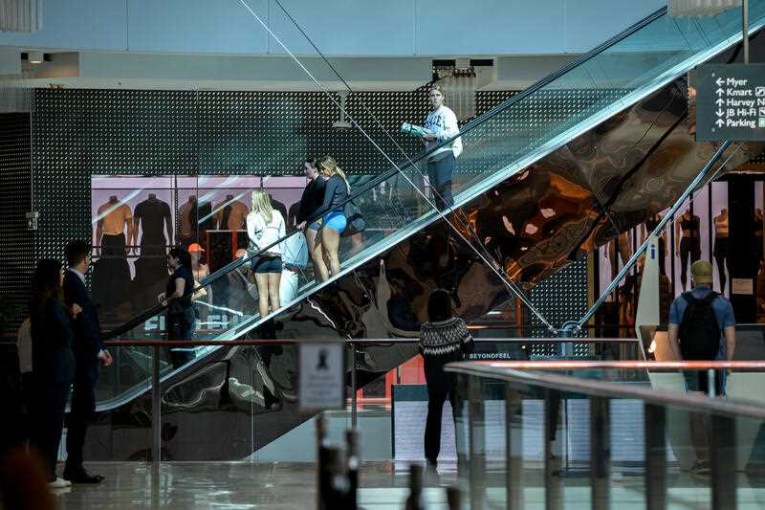Coronavirus: World Health Organisation experts head to Wuhan for COVID-19 origins probe

A team of top scientists from the World Health Organisation will arrive in China on Thursday for a long-anticipated investigation into the origins of the coronavirus pandemic.
The 10 experts will travel to Wuhan, where they will meet Chinese counterparts, China’s National Health Commission said in a one-sentence statement this week – giving no other details.
The investigation has caused international controversy and led to the erosion of Sino-Australian relations after the Morrison government enflamed tensions in April by calling for the independent inquiry into China’s role in the COVID-19 pandemic.
Beijing has faced criticism for stalling the investigation, with WHO forced to engage in months of intense negotiations with the Chinese Communist Party (CCP) before its scientists were allowed to enter the country.
Identifying the cause of SARS-CoV-2 is a difficult challenge, made worse by the tense political backdrop, said Allan Behm, head of the Australia Institute’s International and Security Affairs Program.
“These kinds of international inquiries do work out,” Mr Behm said.
“If you look at the investigation into Ebola, it had challenges. An unco-operative government, lack of funding. There are always obstacles to these things.”
German biologist Robert Koch was part of the team that successfully tracked the Ebola outbreak and is involved in the WHO’s COVID-19 investigation.
WHO is not looking to lay blame on China, but help prevent further outbreaks, Dr Koch said.
“It’s really not about finding a guilty country,” he told the Associated Press.
“It’s about trying to understand what happened and then see if, based on those data, we can try to reduce the risk in the future.”

Identifying the cause of the coronavirus will be difficult. Photo: AAP
The investigation will begin in Wuhan, where the outbreak is believed to have started, before expanding across other parts of China and abroad.
The WHO team will be trying to shed light on how the virus might have first began circulating among humans.
First, the researchers will look at the Wuhan market where it is thought the virus may have originated.
Many of the earliest cases of COVID-19 had some link to the market, but what role it played still remains a mystery, Mr Behm said.
At this point, no one knows where the virus originated,” he said.
“There is speculation it originated in a bat and some speculation those bats were in the wet market. But the virus could have been carried through other vectors.
“All of that is yet to be discovered.”
Early investigations searched 336 frozen animal carcasses sold at the market for the virus but found no link. They did, however, find COVID-19 in local sewage.
“Preliminary studies have not generated credible leads to narrow the area of research,” an initial report by WHO released in November read.
In fact, it is entirely possible SARS-CoV-2 originated elsewhere before circulating in Wuhan, the report notes.
“It may have started from an infected individual contaminated elsewhere, from contact with an infected animal, or less likely through contact with contaminated products,” it said.
The investigators will also go through the city’s hospital records, interview early cases of COVID-19, and review records for suspected COVID-19 deaths that occurred before the first known cases.
Tweet from @WHO
They will also look at previously collected blood samples from medical staff, laboratory technicians and farm workers who were at high risk of exposure, to see if the virus is present.
Mr Behm said China will “likely vet everyone [the WHO] are going to talk to” but that doesn’t mean the government will be unco-operative.
“They’ll give them a list of whom they may talk to, and anyone off that list they won’t be able to,” he said.
The CCP has carefully controlled research into the origins of the virus, with state media in China emphasising theories it could have started elsewhere.
A leak in December showed the CCP had botched its initial response to the outbreak and downplayed its numbers to the world.
At the time, analysts said the government may have leaked the document itself.
Mr Behm said China maintains “tight control” over the research but would want to look like a responsible country on the world stage.
Secrecy is very much part of the way China does business,” he said.

The CCP has come under international scrutiny for its secrecy around the outbreak.
“But at the same time, they want to have an international reputation as a serious player and great power. Those two objectives clash.”
Mr Behm said the CCP would be aiming to achieve two things.
On one hand, the Xi Jinping-led government would want to look like a responsible international player, keen on getting to the bottom of the mystery.
On the other, it would not want to come off as “stupid” for making any mistakes that may have caused the outbreak.
“It is in the interest of China to demonstrate leadership in the scientific search and not look as if it was being sloppy and careless,” Mr Behm said.








